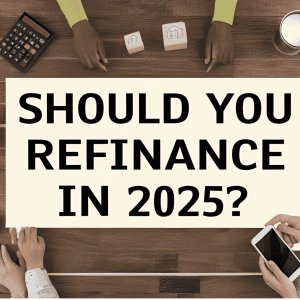If you’re planning to borrow money for a car, home, business, or personal expenses this year, there’s one thing you must do before signing anything: understand the new loan laws in 2025. From federal regulations to state-level shifts, the lending landscape has evolved — and knowing these changes could save you thousands or protect you from legal pitfalls.
Whether you’re a first-time borrower or a seasoned loan applicant, this guide breaks down the most important legal updates, what they mean for you, and how to stay compliant in 2025.

🏛️ Why Loan Laws Are Changing in 2025
2025 is shaping up to be a major transition year for lending in the U.S. Here’s why:
- High interest rates and inflation have sparked regulatory reform.
- Consumer protection agencies are cracking down on predatory lending.
- AI-powered lending decisions are under scrutiny for fairness and bias.
- Student loan forgiveness and debt relief measures are triggering policy overhauls.
Lawmakers are focused on transparency, fairness, and technology ethics in the lending space. If you’re borrowing in 2025, it’s essential to stay updated.
🧾 1. New Rules for Interest Rate Disclosures
In 2025, lenders are now required to clearly display the total cost of your loan — not just the APR. That means you’ll see:
- Full interest paid over the loan’s life
- Total repayment amount including fees
- Clear side-by-side comparisons (required for online lenders)
Why it matters: This gives borrowers a more realistic view of long-term costs, especially for personal or payday loans.
💳 2. Tighter Restrictions on Predatory Lending
The Consumer Financial Protection Bureau (CFPB) has tightened its grip on short-term, high-interest lenders, especially payday and title loan companies.
What’s new:
- Caps on interest rates in several states (some as low as 36%)
- Mandatory financial counseling before certain high-risk loans
- Stricter penalties for deceptive marketing
How this helps you: It’s harder in 2025 for shady lenders to trap borrowers in endless cycles of debt.
🧠 3. AI-Based Lending Must Now Be Explainable
Many lenders now use algorithms to determine loan eligibility and rates. But starting in 2025, AI-powered loan decisions must be transparent and explainable.
New regulations require:
- Clear explanation of why your application was approved or denied
- Disclosure of what factors were weighed (income, credit, debt-to-income ratio, etc.)
- Protections against algorithmic bias (race, gender, ZIP code)
Tip: If you’re rejected by an AI tool, request a breakdown of why — and check for fairness.
📉 4. Federal Student Loan Changes You Can’t Ignore
Student loan reform has made major waves in 2025:
- Automatic forgiveness for qualifying borrowers under the updated SAVE plan
- New income-driven repayment rules that lower monthly costs
- Fresh Start program allows defaulted loans to re-enter good standing
Why this matters: Millions of borrowers may now qualify for partial or full forgiveness — but you must apply or reconfirm eligibility.
📋 5. Home Loan Rules: Easier Access, Smarter Lending
To combat the housing affordability crisis, Fannie Mae and Freddie Mac have introduced borrower-friendly updates in 2025:
- Use of rent payment history to boost mortgage eligibility
- Looser credit score minimums for first-time buyers
- Streamlined refinancing programs for homeowners with federal loans
Also, closing cost transparency laws now require lenders to itemize all fees at least 7 days before signing.
Bottom line: Buying a home is more accessible, but you need to understand the new rules to benefit.
🔐 6. Loan Privacy Laws Are Stronger Than Ever
Your financial data is a hot commodity. That’s why new federal privacy standards now require:
- Opt-in consent for data sharing with third-party services
- Enhanced security for online loan applications
- Right to know what data lenders store — and request its deletion
Pro Tip: Always check the privacy policy before using any loan app or online lender. In 2025, you’re legally protected from unauthorized data use.
🧭 What Borrowers Should Do in 2025
To navigate these legal changes with confidence, here’s what you should do:
- Check your state’s lending laws. Some states have stricter caps and consumer protections than others.
- Ask questions. Lenders are legally required to explain loan terms and decisions.
- Read the fine print. Especially around interest rates, penalties, and AI decision disclosures.
- Use certified loan marketplaces. Stick with well-reviewed apps and services that follow 2025 compliance standards.
- Report bad actors. If you suspect a scam or illegal loan practice, report it to the CFPB.
🗣 Final Thoughts: Knowledge = Power (and Protection)
Loan laws in 2025 are changing to help you, the borrower. They’re designed to make borrowing more transparent, fair, and secure. But remember: laws only help when you understand them.
Before you sign your next loan agreement — whether it’s for a house, car, education, or emergency — take a moment to check the latest legal guidelines. Stay informed, stay protected, and borrow smarter.



